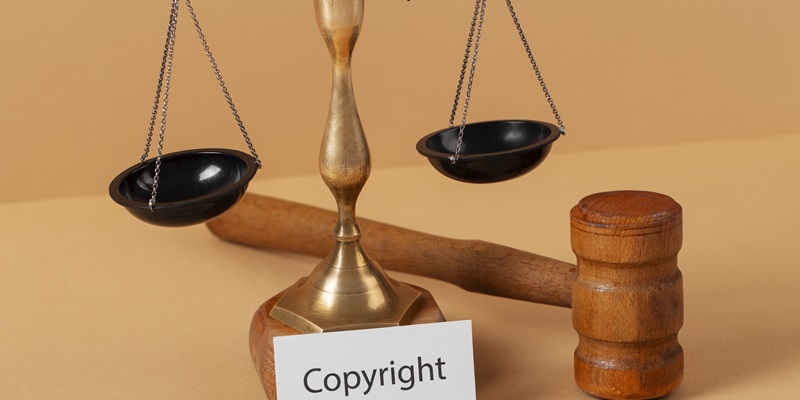The rapid advancement of generative AI (GenAI) technologies has injected a novel complexity into the veins of copyright, data ownership, and privacy law. As tools like ChatGPT become ingrained in industries ranging from entertainment to education, they underscore a pressing need for a legal re-examination. The questions they raise are deceptively simple yet intricately difficult to answer: Does the training of AI on copyrighted materials infringe upon existing intellectual property rights? How do we protect individual privacy when AI can replicate human likeness with uncanny accuracy? As legal professionals grapple with these quandaries, the legal terrain becomes a labyrinth of old doctrines and new realities. This article explores the facets of copyright law, privacy concerns, and the unsettled liabilities businesses face in this new, AI-driven ecosystem.
The Intellectual Property Conundrum in AI Training
The training of generative AI on copyrighted material is at the crux of numerous legal debates. The premise is that for AI like ChatGPT to comprehend and generate human-like text, it must first learn from a vast trove of existing works. This invariably includes copyrighted texts, a practice which has already led to litigious confrontation, as seen in the case of The New York Times suing OpenAI. The courtroom becomes the battleground where the boundaries of fair use are contested, with copyright holders demanding their intellectual due, while innovators advocate for the necessity of AI to learn from the collective human opus.
The courts must now interpret traditional copyright laws in light of novel circumstances that weren’t envisioned when those laws were penned. Legal experts scrutinize every facet of these cases, as the decisions made could fundamentally alter the future of GenAI development. Currently, there are no definitive answers, only a patchwork of precedents and a legal landscape in flux as we await the resolution of high-profile cases that will undoubtedly shape the sector for years to come.
GenAI and Privacy: The Data Dilemma
Generative AI’s ability to process, replicate, and sometimes expose personal data has piqued public concerns about privacy. The rise of deepfakes—AI-generated images, videos, or audio recordings that can be indistinguishable from reality—has especially heightened fears. When these deepfakes impersonate public figures or manipulate their behavior, it’s not just an attack on privacy; it’s an affront to the very notion of truth in the digital age. Such incidents have intensified the call for legal measures that could offer recourse against these virtual invasions of privacy.
Current privacy laws, primarily designed for a pre-AI world, struggle to address nuances posed by GenAI. The legislation may not explicitly accommodate scenarios where an AI-generated piece of content has real-world implications. As lawmakers and regulators scramble to catch up, courts are again left to interpret existing statutes to provide relief to those whose likenesses have been commandeered by this potent technology. The development of legal frameworks specific to AI-related privacy concerns is imperative, and yet the legal system must tread carefully to avoid stifling the innovation that GenAI represents.
Legal Precedents and Emerging Jurisprudence
The courts are on the frontlines of defining the legal identity of GenAI. Just as they did during the infancy of internet law, particularly in cases involving the music industry, judges must now set precedents to guide the application of outdated copyright legislation. The nascent legal decisions emanating from the benches across the globe are offering a window into what the future of GenAI might hold. They are drawing lines in the legal sand, which creators, consumers, and GenAI developers all must heed.
This emergent jurisprudence is of monumental importance because it not merely decides singular disputes but also starts establishing a corpus of law that will dictate the future of art, authorship, and creation in the AI age. The rulings rendered today are the legal seeds from which tomorrow’s digital culture will grow, ensuring that the fascinating dialogue between innovation and intellectual property rights is adequately balanced.
Liability in the Business Implementation of AI
With GenAI’s entry into the business arena, a new level of legal scrutiny emerges. Using AI in a commercial context introduces significant risks, particularly around potential misuse. The question of liability looms large: when AI goes awry, who is to blame—the AI developer, the business that implemented it, or the AI itself? Current litigation swings the spotlight onto organizations, suggesting that businesses might bear the brunt of legal responsibility even when the fault lies in the AI’s programming or operation.
This shifting landscape demands that companies possess a nuanced understanding of how GenAI functions and the legal implications of deploying such technology. Companies need to be proactive, identifying potential pitfalls and ensuring compliance with intellectual property laws and privacy regulations. This approach isn’t merely about risk aversion, it’s about building a strong foundation for the responsible and ethical use of GenAI within the business framework.
The Global Pursuit for AI Regulation
Generative AI, unconstrained by national borders, calls for an international response. As GenAI proliferates, its legal ramifications are triggering worldwide discussions on how to harmonize laws that can effectively grapple with the technology’s unique capabilities. This global pursuit for AI regulation is born not only from a need to protect copyright and privacy but also, perhaps more crucially, from the necessity of ensuring ethical development and deployment of AI systems.
The legal community agrees that although existing laws are a starting point, the peculiarities of GenAI warrant more specialized legal mechanisms. It is a delicate dance of fostering innovation while safeguarding creative and personal rights—a challenge necessitating a collaborative international effort. As these cross-border legal endeavors develop, we inch toward an aspirational and practical legal standard that will seek to encapsulate the intricacies of this transformative technology.

